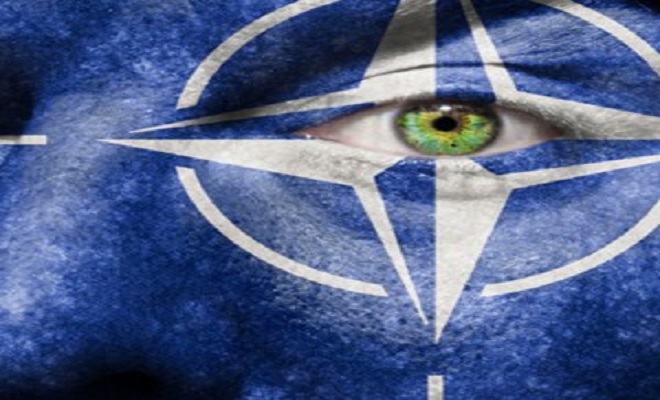 NEO.org
NEO.org
WW3
Are Ukraine and Georgia’s aspirations for NATO membership a threat to European security?
by , NEO.org:
The Ukraine crisis has brought to the forefront of the debate the role of NATO in Europe’s security architecture. After about a decade of being trapped in the conflict in Afghanistan and being seen as irrelevant by many analysts, NATO is now considered to hold both the causes and thepossible solutions to the Ukraine crisis. An increased NATO presence in Eastern Europe or the post-Soviet space is for several EU member states or for Ukraine and Georgia, a guarantee that the West can continue its advance in the region unabated by Russia. Atlanticism has resurfaced with increased momentum in these states. In the context of the EU’s weak and incoherent response to the Ukraine crisis, NATO through the leadership of the US is now the beacon of hope for the West’s quest to promote its values and interests in the post-Soviet space.
Russia, on the other hand, has been signalling during the last decade that Georgia and Ukraine’s aspirations for NATO membership together with some of the EU member states’ renewed Atlanticism can have dangerous effects on the security of the European continent. The Kremlin has perceived the existence of NATO not only as testimony of the fact that the West still thinks of Russia in conflictual terms. It has also understood that European security fostered through NATO cannot assure Russia an equal voice to the US or the EU.
To a certain extent Western leaders have understood Russia’s concerns regarding NATO. The 2008 NATO summit in Bucharest made it clear that the prospects for the alliance to expand to Ukraine or Georgia are very small if not inexistent. However, the US and the EU have more or less consciously fostered the idea in the minds of Ukrainian and Georgian leaders that NATO can increase their countries’ security. Building up US and NATO troop presence in the Eastern European member states or the Black Sea was partly meant to show Ukraine or Georgia that their Atlanticism is paying off.
However, encouraging Ukraine and Georgia’s aspirations for NATO integration has not only worsened the security context in the post-Soviet space, but has also actually made Kyiv or Tbilisi worse off.
Firstly, the EU and the US have primarily sought to advance their economic interests and values in the post-Soviet space. They have used the prospect of NATO involvement in the region to constrain Georgia or Ukraine to adopt almost without debate the West’s entire menu of economic interests, or liberal and democracy promotion efforts. Accommodating the West’s interests and values in the hope of NATO protection was a trade-off that Georgia and Ukraine had to make even if at times it went against their own interests. In turn, the EU and the US have sought to transform the economies in the region into consumer economies for the West’s products, and not into ones that lead to sustainable growth.
Secondly, Georgia and Ukraine have overestimated the level of importance that NATO has for the West. Many states in Europe and even some voices in the US argue that NATO is a relic of the Cold War which has no real purpose in the 21st century. The rationale for keeping NATO floating has been that the alliance has developed a range of capabilities that can be used to tackle common global threats such as terrorism or natural disasters. However, the level of commitment of European states to NATO is questionable, as only few seem to be motivated to raise their defence budgets to the target of 2% decided at the summit in Wales last year. Hence, it is very unlikely that NATO would be willing and able to provide unilaterally a secure environment for Georgia and Ukraine. In terms of security, in the present and complex multipolar environment, these countries might find it more advantageous to seek a multi-vector security strategy. They would have to not only cooperate with the West, but also with the other major actors in the region such as Russia andChina.
Thirdly, the renewed Atlanticism of Georgia, Ukraine and the EU has not only confirmed for Russian leaders their longstanding fears concerning NATO, but also deepened them. While, I think it is clear for the Kremlin that NATO is not very coherent and powerful, the recent European turn to the US for leadership in the area of security is making Russian leaders doubt the West’s intentions. Any medium and long term solutions to the conflict in Ukraine and other frozen conflicts in the region will not be effective if either the West (through NATO) or Russia act unilaterally. In this sense, the future security architecture on the European continent should draw on the mutual interests and concerns of all actors.
Nevertheless, NATO has played a positive role during the conflict. It has been a constant reassurance to the Eastern European member states which share deeply conflictual views towards Russia. In the absence of NATO reassurance it is very likely that these states might have adopted a chaotic and irrational policy towards Russia, potentially providing military aid to Ukraine and dragging the whole of Eastern Europe into the conflict.
The West should not use NATO to provide the same feeling of reassurance to Georgia and Ukraine. This will be false hope for the two countries, as NATO would not be able to provide unilaterally a secure environment for them. Moreover, false hopes have encouraged in the past both Ukraine and Georgia to become more assertive towards Russia in promoting their Atlanticism. A more viable approach for them would be to build bridges not only with the West but also with Russia and China. Both and Kyiv and Tbilisi seem to have partly understood this message as they have started to nurture closer ties with Beijing. At the same time, fostering an effective security partnership with Russia is crucial for assuring the stability of the region and of the two countries.

















